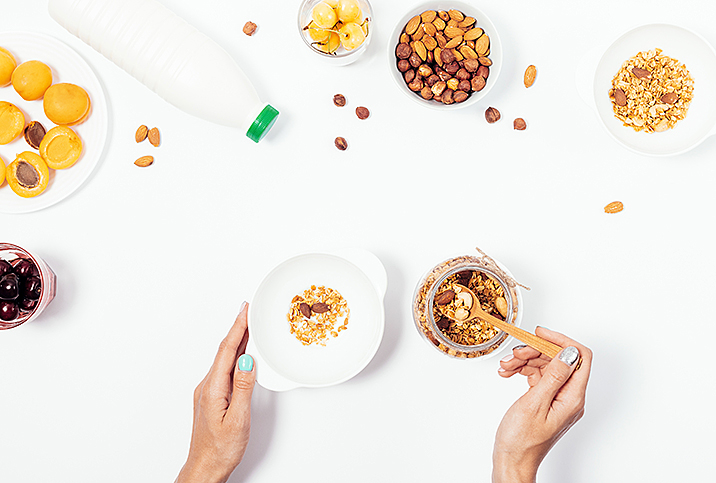6 Ways to Naturally Increase Fertility

If you’re struggling to conceive, you’re not alone. National Institutes of Health information shows that 1 in 8 couples will have difficulty getting pregnant or maintaining a pregnancy. Thankfully, there are some natural ways you can boost your fertility through overall diet and lifestyle changes.
Tips to naturally boost fertility
Getting pregnant requires the processes of ovulation and fertilization to come together at just the right time. According to the Mayo Clinic, the best window of time to try to conceive is in the several days before ovulation through one day after ovulation, which typically falls in the middle of a woman’s menstrual cycle.
Knowing the optimal time to conceive is one plus, but there are also all kinds of natural lifestyle choices you can make that will give you a huge advantage in the fertility stakes. Six of them are discussed here.
1. Maintain a healthy diet
Medical experts believe that maintaining an overall balanced and healthy diet can increase fertility. In fact, a recent study completed by a medical researcher at the Academic Medical Center in the Netherlands found that women who had a healthy body mass index, between 18.5 and 24.9, had a greater chance of getting pregnant than women with a higher BMI.
Eating more fiber and less processed food can also benefit fertility, according to experts. Healthy fats are an important part of any balanced diet, but trans fats—found in things like hydrogenated vegetable oils, fried food and other processed products—have been linked to increased risks of ovulatory infertility because of their negative effects on insulin sensitivity. In addition, obesity can cause a hormone imbalance and prevent regular ovulation.
2. Exercise regularly
Implementing regular exercise into your life can benefit your health in a variety of ways, including your fertility. Exercise has been shown to have positive effects on fertility in both men and women. But remember, as is the case with most things, moderation is key. The National Institutes of Health has reported that too much high-intensity exercise has been linked with decreased fertility in some women.
3. Avoid stress
If you’re planning to get pregnant, it’s essential that you do what you can to lower stress and take the time to relax, including getting adequate sleep, which has been shown to promote fertility. According to research, there is evidence that stress can actually suppress fertility. Some experts believe this might be due to the hormone changes that are triggered by stress.
4. Cut back on caffeine
Though the link between caffeine and fertility hasn’t been proved, some studies suggest that women who consume more than 500 milligrams of caffeine each day could take up to nine months longer to get pregnant. While there is not a consensus in the medical community about the link between caffeine and fertility, it’s probably a good idea to cut back on caffeine temporarily, to one cup of coffee or tea a day, just while you’re trying to get pregnant.
5. Don’t drink excessively
Excessive alcohol consumption can negatively affect fertility, according to medical research. Though it’s not clear exactly how much alcohol is needed to cause fertility complications, one 2016 study showed that women who drank more than 14 alcoholic beverages a week took longer to get pregnant. In addition to avoiding alcohol when pregnant, women trying to get pregnant may want to do the same.
6. Take a multivitamin
Research has suggested that women who take multivitamins on a regular basis may have an easier time getting pregnant quicker. Multivitamins that have folate in them—women need 400 micrograms of folic acid before and into early pregnancy to help prevent neural tube defects, such as spina bifida—might be especially beneficial to women looking to conceive, according to some studies. It’s always a good idea to talk to your doctor about the best multivitamin to take if you’re hoping to aid your chances of fertility.
Dealing with fertility struggles
Implementing these lifestyle changes and diet tips can naturally help increase your fertility. But if you don’t get pregnant right away, don’t be too discouraged. And definitely don’t feel like you’re the only one with this issue: For many women, it can take anywhere from months to years to get pregnant.
It’s worth repeating: If you are concerned about your fertility, speak with your healthcare provider about any additional potential solutions.


















